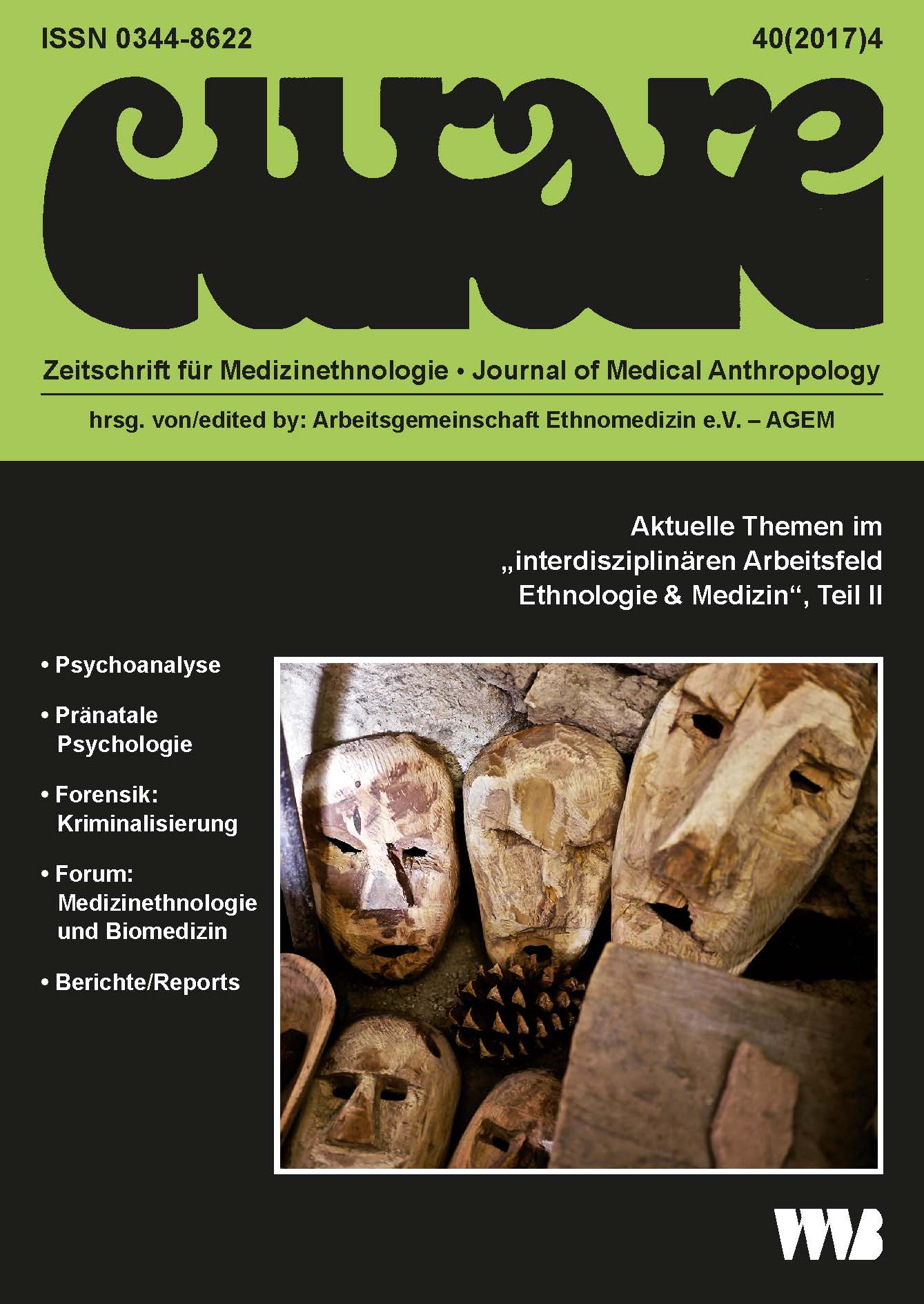The Evils of Ruqyah and Mental Health
Therapeutic Mobility in Algeria and in France
DOI:
https://doi.org/10.60837/curare.v40i4.1765Keywords:
Koranic healing, ruqyah, exorcism, spirit possession, witchcraft, jinn, sickness, supernatural beliefs, mental health, Muslim mobility, Maghreb, Algeria, FranceAbstract
In a context of social and political change in Algeria in the 1990s with the rise of Islamism, the ruqyah, which can be translated as “exorcism,” has become an important recourse for many Muslim sufferers in Algeria and France. Distancing itself from traditionally known care offers and treatments, ruqyah presents itself as modern and “orthodox” while having a tendency towards globalization. Claiming its religious dimension, the ruqyah distinguishes oneself by its ability to expand its field of therapy to encompass the care of the body and psyche of the sufferer. The latter, in search of a cure and/or a solution to his evils (physical, psychic, social) in a context of national or transnational mobility, turns to the râqis, the ruqyah practitioners, while following a biomedical therapeutic itinerary and/or non-conventional therapeutics such as consultation of saints, ṭâlebs, religious brotherhoods or soothsayers. Through the examples encountered during anthropological investigations in Algeria and France in a predominantly urban space, I expose an experience of illness and suffering and their support in a dynamic of curing that are both plural and mobile.
Downloads
Published
Issue
Section
License
Copyright (c) 2024 Curare. Journal of Medical Anthropology

This work is licensed under a Creative Commons Attribution-ShareAlike 4.0 International License.

